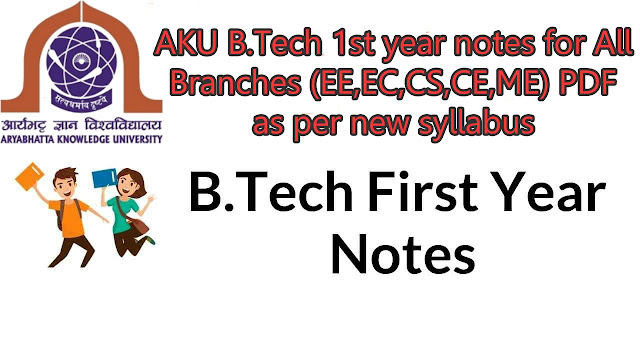NPTEL Soft Skills Week 7 Assignment Answers 2023 (July-Oct)
Introduction
Welcome to the world of NPTEL Soft Skills Week 7 Assignment Answers 2023 (July-Oct). This week's assignment revolves around the art of writing reports, encompassing various types and strategies, along with the crucial aspects of evaluating and organizing data. In this article, we will guide you through this journey, providing valuable insights and expert advice to help you excel in this assignment. So, let's embark on this educational voyage!
NPTEL Soft Skills Week 6 Assignment 6 Solution for 2023
NOTE:- Answers will be updated shortly and it will be notified in our Youtube & Telegram Group. So Join Now
👉
Click Here To Get Solution
Certainly, let's go through each question one by one:
1. Technical reports have a colloquial language.
- False (F)
2. In a short report, unnecessary materials are added to 'References'.
- False (F)
3. There is no analysis and recommendations in an informative report.
- False (F)
4. One advantage of observation is that it reports behavior rather than interprets it.
- True (T)
5. One must avoid leading questions in a questionnaire.
- True (T)
6. What isn't a goal of adjustment letters?
- To recommend an employee
7. What is a formal communication written for a specific purpose called?
- Report
8. Technical reports have an objective approach whereas literary writings have a subjective approach.
- Objective, Subjective
9. What is not a disadvantage of a Telephonic Interview?
- Detailed data not available
10. What is the advantage of questionnaires?
- Different respondents will provide various answers based on how they interpret the questions, giving more than one answer to the problem.
- Bias of interviewer is eliminated
11. In note-making, which type of punctuation marks are used in pairs, one at the beginning of the quoted text and one at the end, while quoting an author?
- Quotation marks
12. What is the purpose of questionnaires?
- To survey a large number of people
- To include multiple perspectives
13. What are the primary ways of Data collection?
- Investigation
- Personal observation
Writing Reports: The Foundation
Understanding the Importance of Reports
Reports are an integral part of any organization. They serve as a means to convey information, analyze data, and make informed decisions. Whether you are in academia or the corporate world, mastering report writing is a valuable skill.
Key Elements of a Well-Written Report
Clarity and Conciseness: A good report should convey its message clearly and concisely, avoiding unnecessary jargon.
Structure: Reports typically follow a specific structure, including an introduction, body, and conclusion.
Evidence-Based: Supporting your points with data and evidence adds credibility to your report.
Audience-Centric: Tailor your report to the needs and expectations of your audience.
Types of Reports
Reports come in various forms, each serving a unique purpose. Here are some common types:
1. Informational Reports
Informational reports provide facts and data without analysis or recommendations. They are often used to update on a project's status or convey research findings.
2. Analytical Reports
Analytical reports delve deeper into a subject, offering an analysis of data and presenting conclusions and recommendations.
3. Research Reports
Research reports are comprehensive documents that detail the methodology, findings, and implications of research projects.
Strategies for Report Writing
Pre-Writing Strategies
- Understanding the Audience: Tailor your report to the specific needs and knowledge level of your audience.
- Research and Data Collection: Gather relevant data and information to support your report's content.
- Outline: Create a clear outline to organize your thoughts and ensure a logical flow.
- Writing and Formatting
- Introduction: Provide a brief overview of the report's purpose and what readers can expect.
- Body: Present information logically, using headings and subheadings for clarity.
- Conclusion: Summarize key points and provide recommendations or insights.
Post-Writing Strategies
- Editing and Proofreading: Review your report for grammar, spelling, and formatting errors.
- Feedback: Seek feedback from peers or mentors to improve the quality of your report.
- Evaluation and Organization of Data
- Data Evaluation Techniques
- Statistical Analysis: Utilize statistical tools to interpret and analyze data effectively.
- Data Visualization: Create graphs and charts to present data visually for better understanding.
- Validity and Reliability: Ensure that the data you use is both valid and reliable.
Organizing Data
Categorization: Group similar data points together to facilitate analysis.
Chronological Order: Arrange data chronologically when it makes sense, such as in a time-series analysis.
Hierarchy: Use a hierarchical structure to organize complex data sets.
FAQs
1. What are the essential components of a report?
A well-structured report includes an introduction, body, conclusion, and supporting evidence.
2. How can I choose the right type of report for my assignment?
Consider the purpose of your report and your audience. Informational reports are suitable for conveying facts, while analytical reports are ideal for providing in-depth analysis.
3. What is the significance of data visualization in report writing?
Data visualization makes complex data more understandable and helps readers grasp key insights quickly.
4. How can I ensure the validity of the data I use in my report?
To ensure data validity, cross-check information from multiple reliable sources and assess the research methodology.
5. What is the role of feedback in improving report writing skills?
Feedback from peers or mentors offers valuable insights and helps you refine your report-writing abilities.
6. Can you recommend any tools for statistical analysis of data?
Popular statistical analysis tools include Microsoft Excel, SPSS, and R.
Conclusion
Mastering the art of report writing is a valuable skill that extends beyond academia into various professional fields. In NPTEL Soft Skills Week 7 Assignment Answers 2023 (July-Oct), you have the opportunity to enhance your report-writing skills. By understanding the types of reports, strategies for effective writing, and techniques for data evaluation and organization, you are well-equipped to excel in this assignment. Remember, practice and feedback are key to improvement. Happy report writing!




